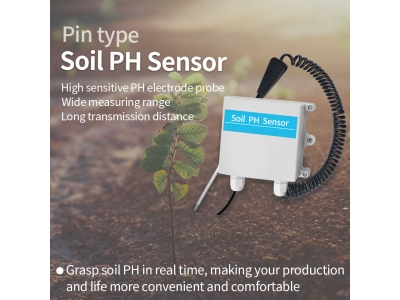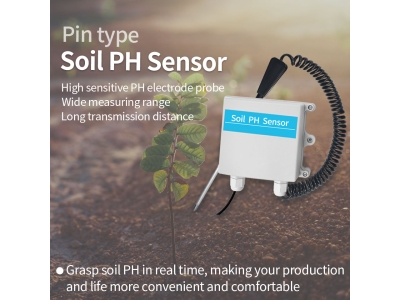Farming is an essential industry that feeds the world's population. However, it is also an industry that faces many challenges, including climate change, soil degradation, and water scarcity. To address these challenges, farmers need to adopt sustainable and profitable farming practices. One such practice is the use of soil sensors. In this article, we will explore how soil sensors can help farmers achieve sustainable and profitable farming.
What are Soil Sensors?

Soil sensors are devices that are used to measure soil moisture, temperature, and other factors that affect plant growth. These sensors can be placed in the soil at different depths to provide accurate data on soil conditions. The data can then be used to optimize irrigation schedules, fertilizer applications, and other farming practices.
Benefits of Soil Sensors
Soil sensors offer several benefits for farmers, including:
Improved Water Efficiency: Soil sensors can help farmers optimize irrigation schedules and deliver water precisely when and where it is needed. This can reduce water waste and improve water efficiency.
Increased Crop Yields: By providing real-time data on soil moisture and other factors, soil sensors can help farmers optimize crop growth and increase yields.
Reduced Fertilizer Use: Soil sensors can help farmers determine the optimal amount of fertilizer to apply to their crops. This can reduce fertilizer use and save money.
Better Soil Health: By providing accurate data on soil conditions, soil sensors can help farmers identify soil health issues and take corrective action.
Lower Costs: By optimizing irrigation schedules, reducing fertilizer use, and improving crop yields, soil sensors can help farmers save money on irrigation and fertilizer costs.
Challenges of Soil Sensors
While soil sensors offer many benefits, there are also challenges to their implementation. One of the main challenges is cost. Soil sensors can be expensive to install and maintain, especially for small-scale farmers. In addition, these sensors require a certain level of technical expertise to operate and maintain, which may be a barrier for some farmers.
Another challenge is the need for reliable connectivity and data management. Soil sensors generate large amounts of data, which must be transmitted and analyzed in real-time. This requires reliable connectivity and robust data management systems, which may not be available in all agricultural settings.
Conclusion
Soil sensors are an essential tool for sustainable and profitable farming. They offer many benefits, including improved water efficiency, increased crop yields, reduced fertilizer use, better soil health, and lower costs. While there are challenges to their implementation, the potential benefits of soil sensors are significant. As the agriculture industry continues to evolve, soil sensors will play an increasingly important role in sustainable and profitable farming practices. By adopting these technologies, farmers can help to feed the world's population while protecting the environment and their bottom line.






